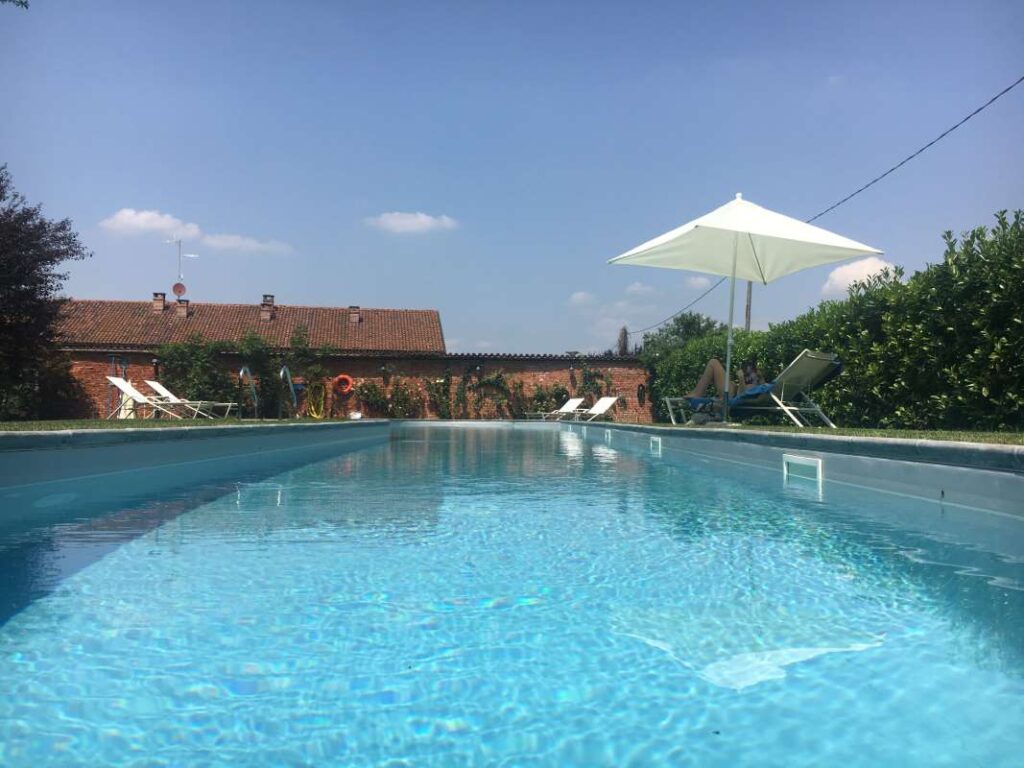Water-Neutral Pools: A New Standard for the Industry?
Explore the concept of water-neutral pools and discover how this innovative approach is shaping the future of the pool industry.
As the world becomes increasingly aware of the importance of sustainability, industries across the board are being challenged to adapt and innovate. Among these industries, the swimming pool sector is beginning to embrace a transformative concept: water-neutral pools. This blog post delves into the significance of water-neutral pools, their implications for the environment, and their potential to set new standards in the pool industry. By the end of this article, you’ll have a comprehensive understanding of what water-neutral pools entail and why they may soon become a staple in pool design and maintenance.
Understanding Water-Neutral Pools
– A water-neutral pool is designed to use the same amount of water as it returns to the environment through evaporation and splash-out. This concept aligns with the growing demand for eco-friendly construction and maintenance practices.- Traditional pools often lead to significant water loss through evaporation, which can strain local water resources, especially in arid climates. The goal of a water-neutral pool is to offset this loss by employing advanced technologies and techniques.- Key features of water-neutral pools include: – Water Capture Systems: These systems collect rainwater and runoff, redirecting it into the pool’s water supply. – Evaporation Reduction Technologies: Innovations such as pool covers and advanced filtration systems minimize water evaporation. – Water Recycling: Utilizing wastewater systems to treat and reuse pool water can dramatically reduce overall water consumption.As communities become more water-conscious, the need for responsible water management in recreational facilities becomes ever more pressing. Implementing water-neutral solutions is not just beneficial but vital for sustainability.
The Benefits of Water-Neutral Pools
– Environmental Impact: By minimizing water usage, water-neutral pools can significantly reduce the ecological footprint associated with traditional pool maintenance.- Cost Savings: While the initial investment may be higher, the long-term savings on water bills can be substantial. Additionally, users can avoid costly penalties related to water usage in drought-prone areas.- Enhanced Property Value: As the demand for sustainable features in homes and properties rises, having a water-neutral pool can enhance a property’s market value and appeal.- Complying with Regulations: Many regions are introducing regulations aimed at reducing water consumption. Water-neutral pools can help pool owners stay ahead of these regulations, ensuring compliance and avoiding fines.Real-world examples demonstrate the efficacy of these pools. For instance, several hotels and resorts have adopted water-neutral systems, showcasing their commitment to sustainability while attracting eco-conscious customers.
Challenges and Considerations
– Initial Costs: The upfront investment for constructing a water-neutral pool can be higher than traditional pools due to the advanced technologies and materials required. However, this cost can be justified by long-term savings and environmental benefits.- Maintenance Complexity: Water-neutral pools often require specialized maintenance and monitoring systems, which could necessitate additional training for pool service professionals. Companies like
Superior Pool Routes offer extensive training programs that can help new and existing professionals adapt to these changes.- Availability of Resources: The implementation of water-neutral systems may depend on the availability of suitable technologies and skilled technicians capable of maintaining these systems effectively.Despite these challenges, the potential rewards of adopting water-neutral pools far outweigh the obstacles. The shift toward sustainable practices is inevitable, and businesses that proactively embrace these changes will be better positioned for future success.
Technological Innovations Driving Water-Neutral Pools
– Technological advancements are at the forefront of the water-neutral pool movement. Innovations include: – Smart Water Management Systems: These systems monitor water levels, evaporation rates, and weather patterns, allowing for precise control of pool water usage. – Advanced Filtration and Treatment Technologies: Modern filtration systems can efficiently clean and recycle pool water, reducing the need for fresh water. – Solar-Powered Water Heaters: Utilizing solar energy for heating reduces the reliance on traditional energy sources, further contributing to sustainability.The integration of these technologies can significantly enhance the user experience. For example, automated systems can adjust pool conditions based on user preferences and environmental conditions, promoting both efficiency and enjoyment.
Water-Neutral Pools in the Market: A Growing Trend
– As awareness of sustainability continues to grow, the demand for water-neutral pools is on the rise. This trend is reflected in various sectors of the industry, including: – Residential Markets: Homeowners increasingly seek eco-friendly options when building or renovating pools. Water-neutral features are becoming a key selling point. – Commercial Developments: Hotels and resorts are adopting water-neutral pools as part of their sustainability initiatives, often marketing them as unique selling propositions that appeal to environmentally conscious travelers. – Public Pools: Municipalities are investing in water-neutral technologies to reduce costs and promote sustainability in public spaces.Industry leaders, like
Superior Pool Routes, are adapting their services to meet this growing demand. By providing pool routes that emphasize sustainable practices, they are not only supporting their clients but also contributing to a greener future.
Conclusion: The Future of Pool Design and Maintenance
In conclusion, water-neutral pools represent a significant shift in the pool industry towards sustainable practices and responsible water management. As environmental concerns continue to dominate global discussions, the adoption of water-neutral pools is likely to become the standard rather than the exception. With the potential for cost savings, enhanced property values, and compliance with regulations, the reasons for transitioning to water-neutral systems are compelling. Furthermore, as technologies advance and training opportunities, such as those offered by
Superior Pool Routes, become more accessible, the barriers to entry will diminish.Ultimately, embracing water-neutral pools is not just about meeting current demands—it’s about preparing for a sustainable future in the pool industry and beyond. As consumers, businesses, and communities rally for change, the ripple effects of adopting sustainable practices will be felt for generations to come. If you’re considering making a move toward sustainable pool maintenance, explore
pool routes for sale in your region and take the first step toward a greener tomorrow.



